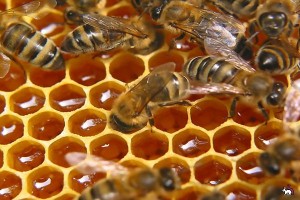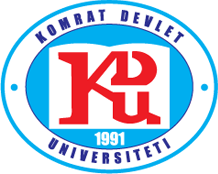University: Comrat State University (CSU), Moldova
This course demonstrates a fundamental understanding and concepts related to beekeeping, including keeping, breeding, and obtaining ecological beekeeping products. Particular attention is paid to the role of bees for pollination of entomophilous crops. Basic personal and community leadership and security, as well as agricultural mechanical technologies, are included in the curriculum. SQA is fully available online.

Students, cycle of master – mandatory, 2 d year of study of CSU.
Management in agriculture
ECTS - 5
Direct contacts hours
Theory - 30 h.
Nondirect contacts hours
Independently work - 120h.
Total - 150 hours

- Teacher: Iulia Neicovcena
University: The National University of Life and Environmental Sciences of Ukraine (NUBiP)
By studying this discipline, students will gain practical knowledge of a set of global requirements and recommendations for the quality of laboratory research. Future specialists will gain knowledge on organization of activity and carrying out of measurements in molecular genetic laboratories, will master basic methods, will become acquainted with work of the devices used for PCR. The purpose of studying the discipline "Organization of activities and measurement in laboratories" is to provide students with modern knowledge and practical skills on world requirements and recommendations for methods, objectivity and quality of laboratory tests, timely provision of the necessary modern laboratory information. The aim of the discipline "Organization of activities and measurements in laboratories" - to achieve quality assurance of laboratory tests based on the improvement and high reliability of research methods, as well as providing the necessary laboratory information for practical medicine.

- Teacher: Serhiy Mykolayovych Hryshchenko
University: The National University of Life and Environmental Sciences of Ukraine (NUBiP)
The purpose of mastering the discipline "Modern methods and devices of laboratory research" is to master the methods of molecular genetic analysis in animal husbandry using polymerase chain reaction.
Tasks of the discipline:
- formation of students' skills and abilities to conduct laboratory research using modern equipment and technologies;
- formation of scientific culture in the planning of experimental laboratory work, development of the main stages of research and design of scientific products.
As a result of studying the discipline, the student must know: theoretical basis of PCR research methods; the use of PCR methods in predicting the productive qualities of farm animals; use of PCR methods for examination of feed for farm animals; use of PCR methods for examination of feed, for detection of infectious and invasive diseases of animals; work with basic equipment of PCR laboratories; prepare biological material for DNA isolation; isolate DNA from biological material; prepare and perform PCR; assess the quality (visualize) PCR; plan work in the PCR laboratory.

- Teacher: Serhiy Mykolayovych Hryshchenko
University: The National University of Life and Environmental Sciences of Ukraine (NUBiP)
By studying this discipline, students will gain practical knowledge of a set of global requirements and guidance regarding accounting and productivity control for breeding and dairy cattle, dairy goat and sheep breeding. Future specialists will gain knowledge of the methodological foundations of modern management of the breeding process, master the world requirements of assessing the breeding value of animals, as well as knowledge of the terminology and methods used in this.

- Teacher: Serhiy Mykolayovych Hryshchenko
